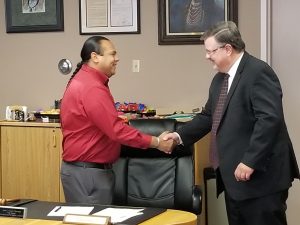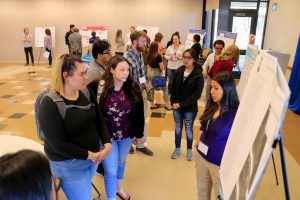Congratulations Class of 2022
![]()
ASSOCIATE OF ARTS
Social Science
Jacqueline Garcia-Hernandez
BACHELOR OF ARTS
American Indian Studies
Ida Velvet Shock •
Biology
Amarilis Mariflor Santiago
Business Administration
Gissell Aguilar
Juan Diego Aguilar
Maritza Alvarez Herrera
Latonia Andy ‘Káyx Wawkikuk’
Alonso Anthony Arroyo
Arturo Ayala
Diana Borges
Leslie Castillo
Joseph Cochran
Sandra Feria
Gissel Garcia Silva
Roman Garcia
Raul Gurrola
Alondra Belen Guzman
Jalisa Lopez
Tania Lopez
Edgar Maranon
Victor Manuel Monreal
Priscilla Montiel Sanchez
Tanya Rae Peters
Juan Manuel Quintero Macias, Jr.
Fatima V. Regla
Pablo Gerardo Vera Rivera
Criminal Justice
Emillo C. Avila
Raven Curtis Bolen
Briseida Carbajal-Prudencio
Dalia Chavez
Artemio Flores
Francisco Juan Gonzalez
Alejandra Gonzalez Herrera
Richard Henry Hazenberg
Sydney Lee Hill
Alicia G. Ibarra
Karina Padilla
Oscar Ponce
Jennifer Ramos
Kayla Hope Renschen
Dustin Michael Rogers
Yenifer Samantha Ruelas
Abigail Santos
Jerrilyn Stevens
Thalia Crystal Zamora
English
Yosi Barajas
Shannon M. Ozog
Lupe Rosales
Environmental Studies
Alexander Martinez Chavez
Dehlia Darlene Wolftail
History
Jami Lynn Hanks
Hunter Michael Jacob
Shaina Marie Longee
Elena Danielle Maltos
Carolina Moran
Information Technology
Manuel Anaya
Interdisciplinary Contract
April Cristine Wimble
Psychology
Nelson R. Avila-Mendoza
Heather Kay Chronister
Sonia Guerrero
Audrey Igiraneza
Nansi Banessa Iniguez
Norma Imelda Manzanarez
Liliana Marquez
Elizabeth Orozco
Fredis C. Ramirez
Katia Sanchez Gutuerrez
Monserrat Torres-Becerril
BACHELOR OF ARTS IN EDUCATION
Elementary Education
Lorena Alvarez
Andrea G. Barajas
Molly Elizabeth Baylor
Jennifer Bacerra
Faith Linnae Bold
Jasmine Castillo
Salvador Kale Cobar
Gustavo Arturo Contreras
Richard J. Corona
Joliana Alexandria Correa
Oscar Daniel Curiel
Esperanza Arely Delgado
Laura Yetsy Delgado
Mayra Yanet Delgado
Kassandra Lynn Espada
Bianca Lucero Gonzalez Estrada
Denise Guzman
Kyrsten Joelle Harris
Karely Jaime
Janeli Miranda Llamas
Armando Aranda Lopez
Freddy Omar Martinez
Leidy Martinez
Chantal Mejia
Elizabeth Carole Grover
Brenda Guadarrama-Cervantes
Silvia Guendulein Cruz
Angela N. Guerrero
Yazmine Alexiz Guido
Cecilia Joanna Guillen
Yuli Guzman Palacios
Tayler Lee Hill
Tasia Rai Hoptowit
Melissa Sue Kelly
Veronica Lopez
Gabriela Madrigal
Guadalupe Magallan
Kimberly Guadalupe Magana
Edward Martinez
Ariana Annett Martinez-Saldana
Kathleen Marie McIntosh
Angeles Olvera
Fernanda Yaeli Ortiz
Joaquin Padilla
Rebecca Pendell (Guizar)
Julia Faye Polk
Maria Santos Quezada Antunez
Inari Marie Raines
Edith Ramirez
Ramon Razo
Marely Rivera Morales
Andrea Marlene Robertson
Jocelyn Robles
Elizabeth Rachel Rodriguez
Jasmine Nicole Romero
Janele Arianna Rosales
Alondra Ruiz
Sharla M. Sloppy
April Elisa Smith
Diosalen Valdez
Christian Lili Valladares
Citlaly Mairely Villegas-Gil
Ashley Whitefoot-Erickson
Cambrie Ann Nechanicky
Daydrian Noyola
Ana Laura Olivares
Turquesa Paz
Rylee Malyn Pickel
Zaida Editt Ramirez
Yessica Regis-Vega
Ashley Elizabeth Rodriguez
Lidsey Rae Rodriguez
Veronica Rodriguez Mendoza
Nayeli Sabalsa
Laura Sandoval
Katelyn Marie Schell
Dane Craver Small
Alexander Marie Veloz
Eimeeli Yoselin Villa Farias
Nicole Zavala
Middle-Level Education
Jennifer Guadalupe Castaneda
Kely Reyes
Jacqueline Tlatelpa
BACHELOR OF SCIENCE
Accounting
Ryan M. Akers
Yarizza Alvarez
Sandra Canales
Alexandra Marie Davey
Omar Diaz
Carlos Daniel Iraheta
Tina Marie Janes
Herlinda Yakelin Montemayor
Kendra Jean Nies
Pdeh Wah Paw
Joanna Perez Espinoza
Mitzi Doraly Ramirez Deniz
Diana Iris Rios
Sara Gabriela Sanchez
April Renee Shelden
Biology
Antonio Franco
Reina Margarita Luna
Marissa Mendoza
Stephanie Rabanales
Alfredo Reyes
Karly Beth Serrano
Daniela Alejandra Solis
Yoana Torres
Rudy Velasquez
Alondra Zaragoza-Mendoza
Computer Science
Alvaro Diaz
Enrique Martinez
Environmental Science
Xavier Martinez Chavez
Orlando Pelcastre
BACHELOR OF SCIENCE IN NURSING
Nursing
Brisel Aurora Acuna
Jennifer Rose Cantu
Roma Galitea Cantu
Marlene Castillo
Quincey Marie Christenson
Heather Sue DeLozier
McKenzie Danielle Durand
Taylor Nicole Ebbelaar
Leticia Garcia
Luis Fernando Garcia
Tashae J. Gomez-Jones
Kaylyn E. Gunnier
Elisa Mariscal
Andrea Martinez-Santiago
Kailyn McKenzie Mendez
Payton Angelica Moore
Camryn Elise Newell
Dennise Quebrado Martin
Viviana Belen Rico
Alayna Faith Vanover
Alexis N. Wolfley
BACHELOR OF SOCIAL WORK
Social Work
Valerie Aispuro
Carina Alvarez Barajas
Brissi Alvarez Delgado
Yamilet Aquino Prado
Victoria Barajas
Tiffany Ann Barney
Crystal Bednarski
Elizabeth Desiree Belieu
Lynette Renee Brewer
Amanda Marie Brown
Yesenia Cardenas
Bianca Elizabeth De Trinidad Chavez
Elida Alejandra Chavez
Deanna Candice Chief
Elizabeth Cisneros
Erica Gabriela Diaz
Tania Dominguez Hernandez
Sophie Larraine Elwell
Alejandra Estrada
Zinai Farias
Sylvia Angelica Flores
Rachael Marie Gale
Javier Manuel Galindo
Yunuenn Jimena Garcia
Dominic Garza
Briseida Gonzalez
Gladys Leslie Gonzalez Lopez
Veronica Gonzalez
Elizabeth Carole Grover
Brenda Guadarrama-Cervantes
Silvia Guendulein Cruz
Angela N. Guerrero
Yazmine Alexiz Guido
Cecilia Joanna Guillen
Yuri Guzman Palacios
Tayler Lee Hill
Tasia Rai Hoptowit
Melissa Sue Kelly
Veronica Lopez
Gabriela Madrigal
Guadalupe Magallan
Kimberly Guadalupe Magana
Edward Martinez
Ariana Annett Martinez-Saldana
Kathleen Marie McIntosh
Angeles Olvera
Fernanda Yaeli Ortiz
Joaquin Padilla
Rebecca Pendell (Guizar)
Julia Faye Polk
Maria Santos Quezada Antunez
Inari Marie Raines
Edith Ramirez
Ramon Razo
Marely Rivera Morales
Andrea Marlene Robertson
Jocelyn Robles
Elizabeth Rachel Rodriguez
Jasmine Nicole Romero
Janele Arianna Rosales
Alondra Ruiz
Sharla M. Sloppy
April Elisa Smith
Diosalen Valdez
Christian Lili Valladares
Citlaly Mairely Villegas-Gil
Ashley Whitefoot-Erickson
MASTER IN TEACHING
Elementary Education
Sina Ari Bigelow
Jeremiah Lee Jordan
Steffanie Cecilia Mata
Cassandra Marie Rodriguez
Elementary Education Specialization in Bilingual Education
Cecilia Cardenas-Tellez
Zane Tyler Dellinger
Ingrid Adelaida Gallegos
Yaritza Morales Erika Sanchez
Elementary Education Specialization in English Language Learners
Christopher James Howell
Joyce M. Johnson
Rosalina Guadalupe Martinez
Monica Selene Neri
Melissa Ramirez
Elementary Education Specialization in Special Education
Saul Anton Arambul
Savanna M. Barrera
Grace Jessica Brewer
Jessica Maria Caballero
Antonio Camposeco
Gabriela Clara
Kody Levi Dotson
Karla Jean Flores
Rita Isabel Gonzalez
Lisa Marie Henson
Daicee Raylene Humphrey
Kayla Christine Johnson
Kylie Desiree Salgado Lopez
Shaina Mumtaz Mirza
Rachel Marie Pinkerton
Jasmin T. RiveraMaricruz Sauceda
Cassandra Saucedo
Shawn Leonard Scabby Robe
Laura Mae Smith
MASTER OF ARTS
Multicultural English Literature & Language
Marla Allsopp
Debra Ann Hall
SaraBecca Martin
Michael McNeill-Martinez
Trenton Carl Mendelson
MASTER OF EDUCATION
Educational Administration (Principal)
Guadalupe Garibay
Mary JoAnn Nelson
Inclusive Education
Josefina Martinez Chavez
Marinella Alexis Chvatal
Noemi Reyes Tule

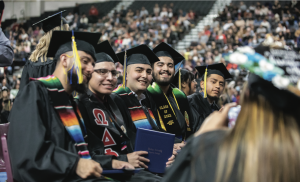 Commencement is always a joyous occasion for Heritage University students and their families. This year it was doubly so. It was the first time in three years that the event took place in person and as scheduled.
Commencement is always a joyous occasion for Heritage University students and their families. This year it was doubly so. It was the first time in three years that the event took place in person and as scheduled.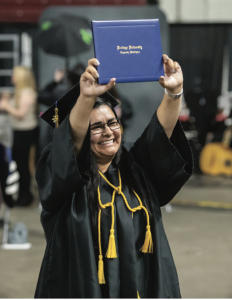
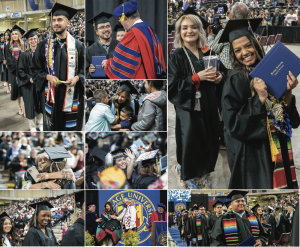
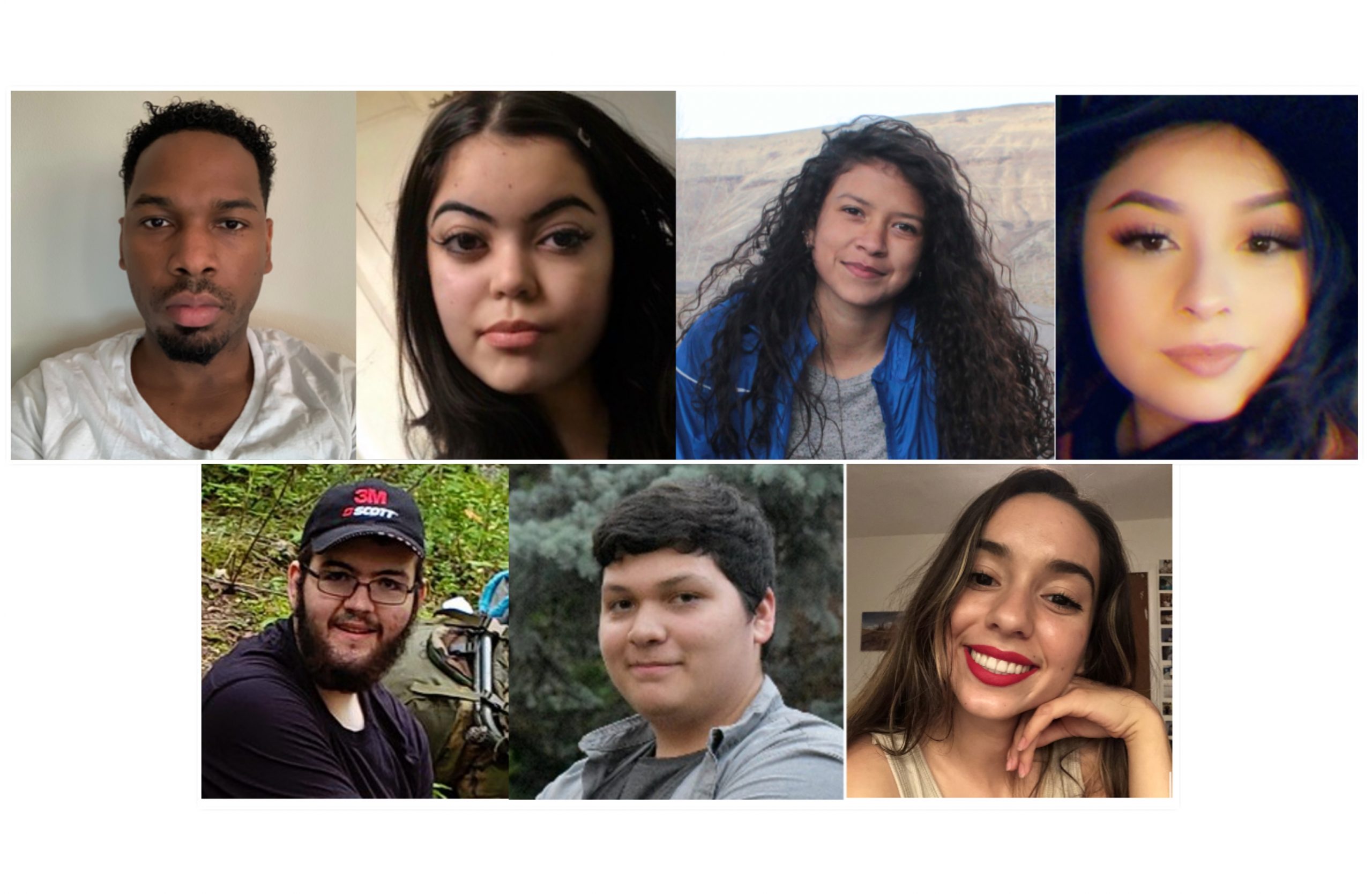
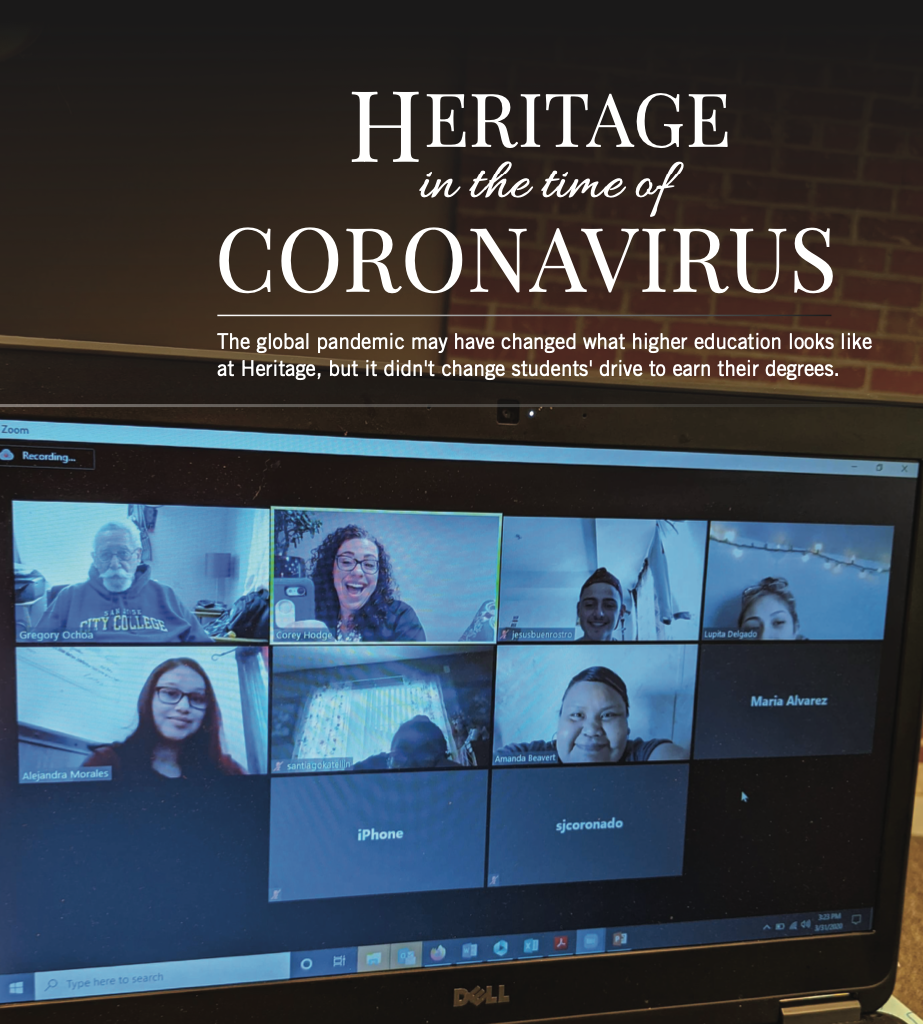
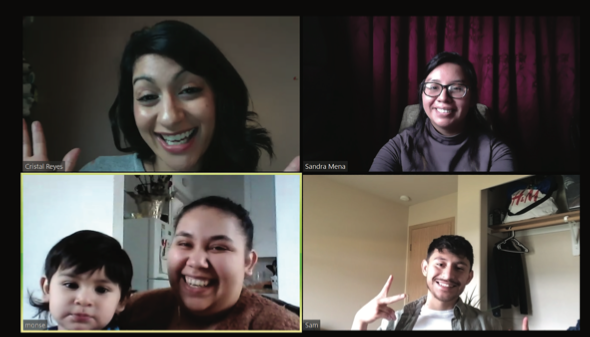
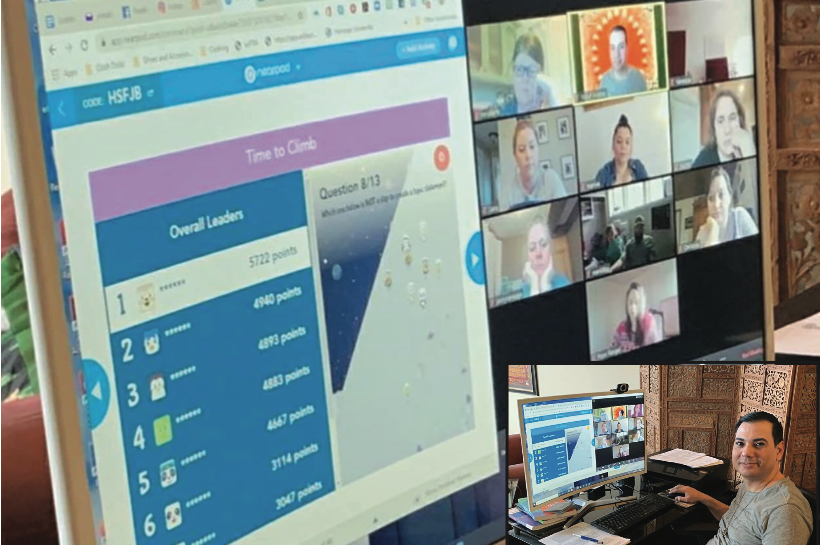
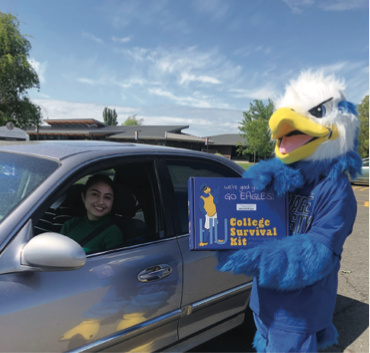

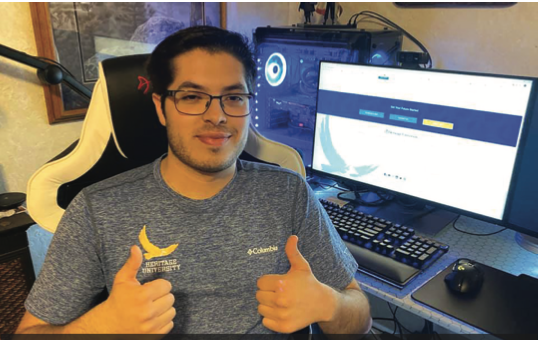

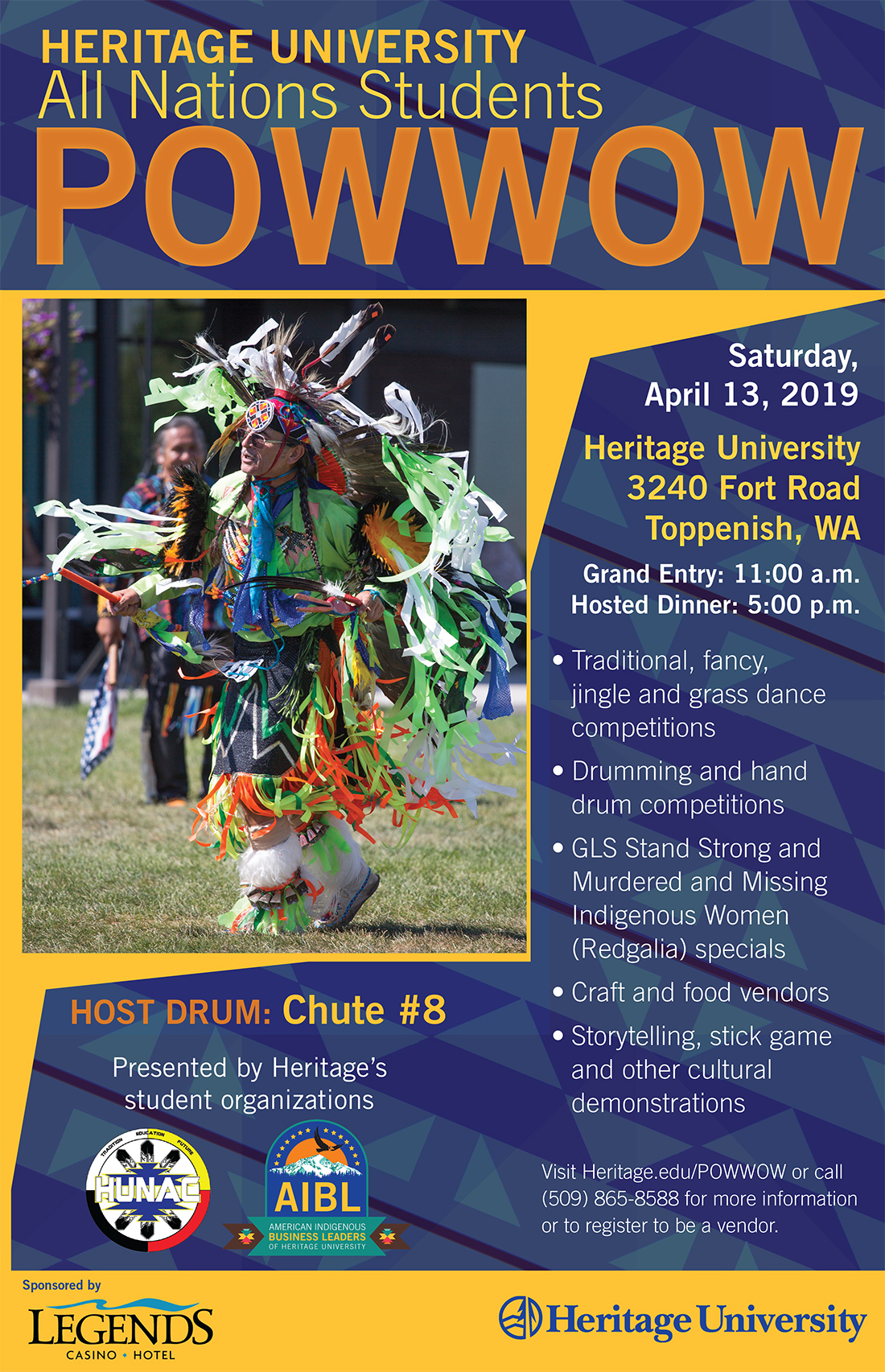
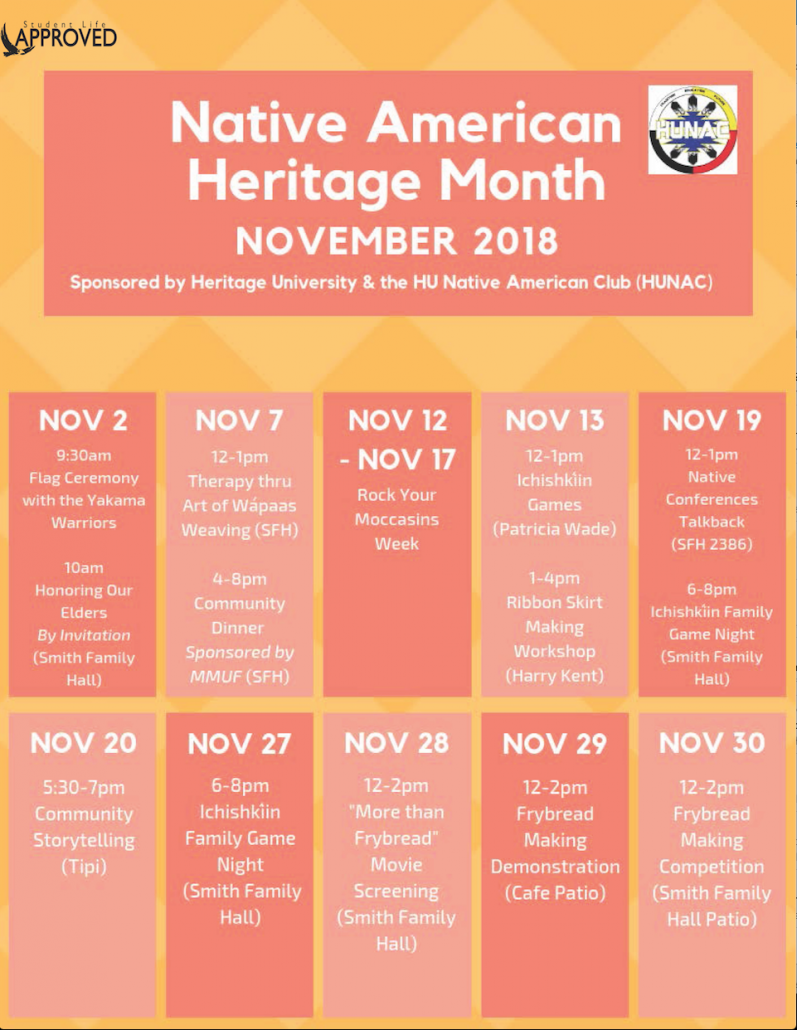 Flag raising ceremony and an event honoring Yakama elders kick off Native American Heritage Month at Heritage University
Flag raising ceremony and an event honoring Yakama elders kick off Native American Heritage Month at Heritage University